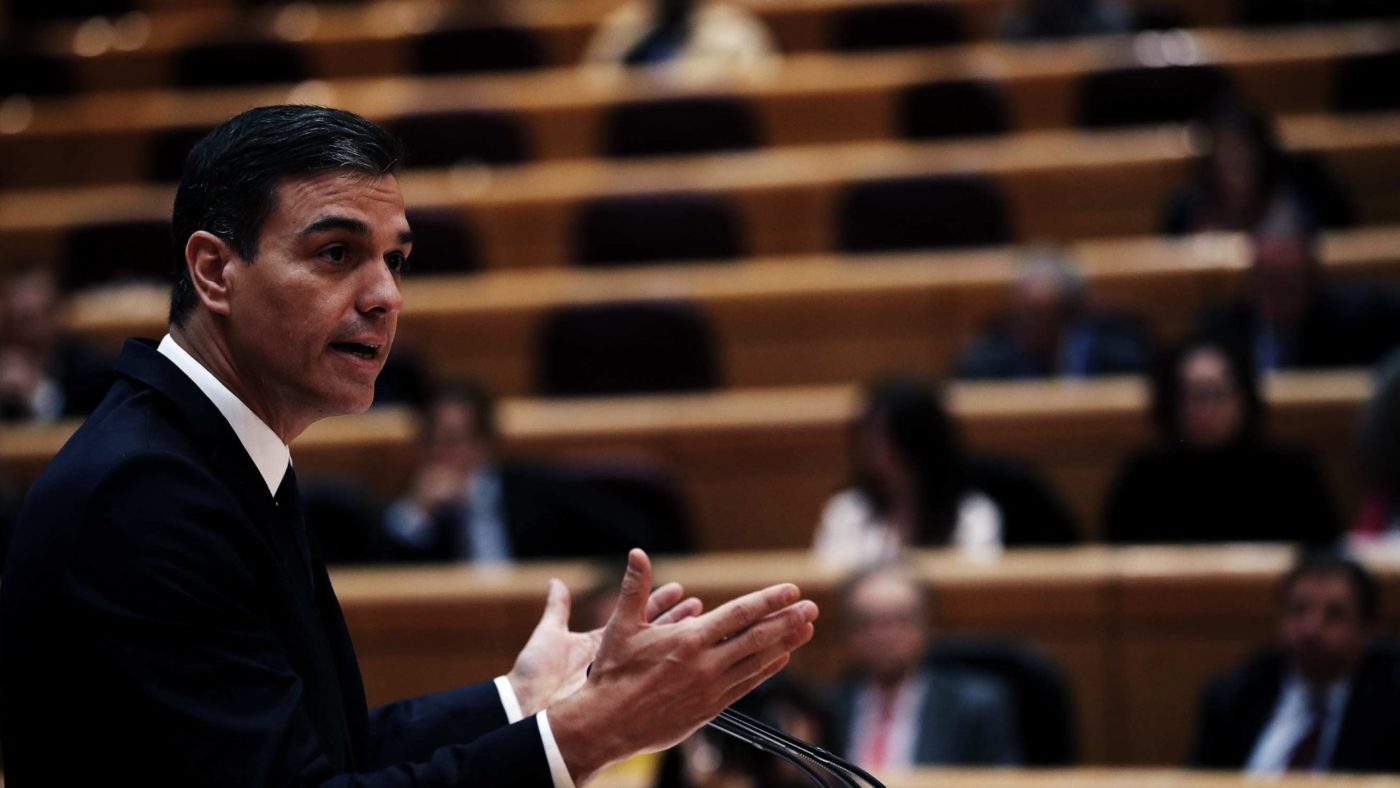Last month, Spain’s Prime Minister Pedro Sánchez reached an agreement with Podemos, the left-wing populist party over next year’s budget. Despite the government’s efforts to get other political groups to support the proposals, which have already criticised by the European Commission for being too expansive, the lack of a parliamentary majority means it will be difficult for Sanchez to get most of his plans through Congress.
Unfortunately, that won’t prevent the Socialist from implementing one of its key policies – a massive 22 per cent increase in the legal minimum wage, which would go from 858 euros a month to 1,050 euros in 2019 (and could rise to 1,166 euros in 2020). Unlike most legislation, the executive doesn’t need the approval of Congress to set the minimum wage, so Sánchez’s government will have a free hand to undertake the largest such increase since 1977.
The Bank of Spain has already made clear how much harm the policy could do to Spain’s already fragile economy. The mechanism though which minimum-wage increases can negatively affect employment is already well known. Minimum wages function as a price floor, forbidding businesses from hiring workers for less than the amount established by law. This implies that firms will tend to lay off workers whose contribution to total output is below the legal threshold, with obvious consequences for unemployment. Similarly, firms will think twice about hiring people if the cost of employment is prohibitively high.
In Spain’s, the impact of a big rise will be relatively modest, given that only 3.6 per cent of all employees earn the minimum wage. However, the agreed increase would raise the percentage of minimum-wage earners to around 8 per cent of the employed population, doubling the number of workers affected by the measure. What’s more, the burden would be overwhelmingly borne by the most economically vulnerable segments of the population, namely young people and low-skilled workers.
Nonetheless, recent experience shows that minimum-wage increases don’t always reduce employment on a net basis. In 2017, Marian Rajoy’s centre-right government raised the minimum wage by eight per cent, and the unemployment rate continued to fall throughout 2017 and 2018. This is not all that surprising. After all, there are many factors that determine the unemployment level in a country – the phase of the business cycle, the flexibility of the labour market and the dynamism of the economy, to name just a few.
But that does not mean pushing up the legal minimum wage above the market minimum wage will be harmless, particularly given the size of the increase Sanchez is proposing. Minimum-wage increases might not create unemployment during economic booms, but they can slow down the pace of job creation, reduce the numbers of hours worked or result in the replacement of low-skilled workers with better qualified ones.
What does the empirical evidence tell us is likely to happen In their 2008 book Minimum Wages, David Neumark and William L. Wascher summarise the evidence of two decades of research on the effects of minimum wages on the US economy. They conclude that minimum wages reduce employment of low-skilled workers, don’t help low-income families move up the income ladder and have a negative impact on educational attainment.
Can these results be extrapolated to the Spanish economy? Yes, but only partially. In Spain, the evidence available regarding the effects of minimum wages on employment is mixed, although there are more studies that find a negative impact.
However, given the malfunctioning of Spain’s labour market (the unemployment rate is the second highest in the Eurozone) and the slowdown of the Spanish economy over the last months, Spanish politicians really ought to refrain from grandiose policy experiments that are likely to do more harm than good. Worst of all, it is the poorest – the supposed beneficiaries of the policy – who are liable to suffer most from its unintended consequences.
Those who think that wages can be automatically raised via executive orders should wonder why some of the world’s richest countries, such as Switzerland or Denmark, don’t have national minimum wages. Perhaps then they might realise that wages aren’t determined by government edict, but by an economy’s capacity to grow.


